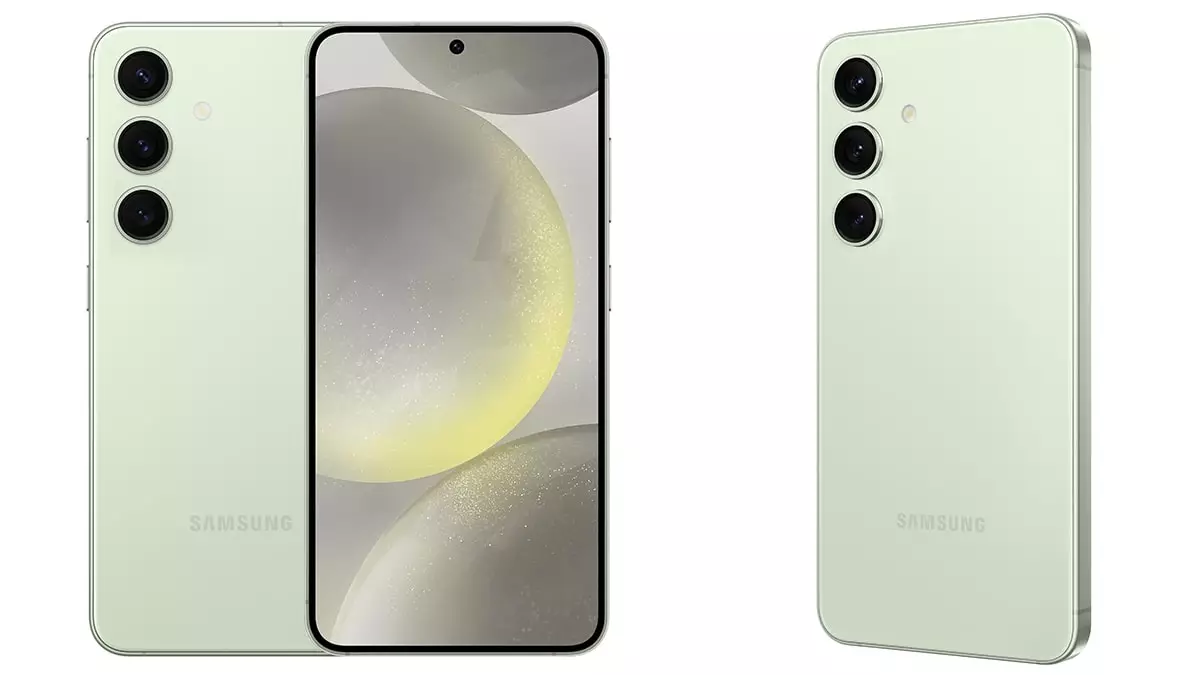As technology continues to advance at a dizzying pace, major manufacturers like Apple and Samsung are constantly looking for ways to stand out in an increasingly crowded smartphone market. Recent reports suggest that both companies are contemplating the introduction of slimmer models in their upcoming lineups. Apple may soon reveal an iPhone 17 Slim, while Samsung is exploring a Galaxy S25 Slim variant. This potential trend could denote a significant pivot in smartphone design philosophy, with a shift towards lighter, more portable devices that cater to contemporary user demands.
According to industry insiders, the iPhone 17 Slim—or possibly dubbed the Air—could make its debut in the latter half of 2025. This model is speculated to replace the existing Plus variant, although this remains to be confirmed. The iPhone’s evolution has been marked by a gradual reduction in size and weight, and the addition of a Slim or Air model would be a continuation of this trend. In a world where users increasingly prioritize portability without compromising functionality, Apple’s anticipated offering could meet that demand effectively.
The excitement surrounding the iPhone 17 Slim lies not only in its improved form factor but also in its anticipated technical advancements. Apple’s commitment to incorporating cutting-edge technology into its devices suggests that this model may include enhanced features, possibly even differentiating itself with exclusive functionalities not available in earlier designs.
On the other hand, Samsung is reportedly eyeing the launch of the Galaxy S25 Slim, with expectations set for a limited release. As mentioned by a South Korean source, the Galaxy S series typically consists of a standard model, a Plus variant, and an Ultra. The introduction of a Slim model may disrupt this usual pattern and shows Samsung’s willingness to experiment, gauging consumer response meticulously before committing to a more extensive rollout in future iterations.
What distinguishes the Galaxy S25 Slim is its potential lightweight design, reflecting a growing trend in consumer preference. For some smartphone users, hefty devices are becoming less appealing, particularly as more people opt for usability and convenience. If Samsung decides to mass-produce the Slim model in response to positive initial reviews, it would mark the most significant design evolution for the Galaxy S series in over four years.
The emergence of slim models from both Apple and Samsung signals broader implications for the smartphone industry. Consumers today are not just seeking powerful devices; they also demand greater functionality while maintaining ease of transport. Brands are pressured to innovate continuously, challenging them to rethink their designs to meet evolving consumer preferences.
As the competition heats up between these tech giants, the stakes are high. Each new release could potentially alter market dynamics and influence consumer choices significantly. The advent of a slimmer form factor in Apple and Samsung’s lineup suggests a foreseeable future where mobility and design sophistication coalesce seamlessly, setting the stage for the next generation of smartphones.
The anticipation surrounding the iPhone 17 Slim and Galaxy S25 Slim paints an exciting picture for the future of mobile technology. Consumers can expect greater choices and innovative designs that truly cater to their needs, marking a pivotal moment in how smartphones are perceived and utilized in everyday life.

Leave a Reply